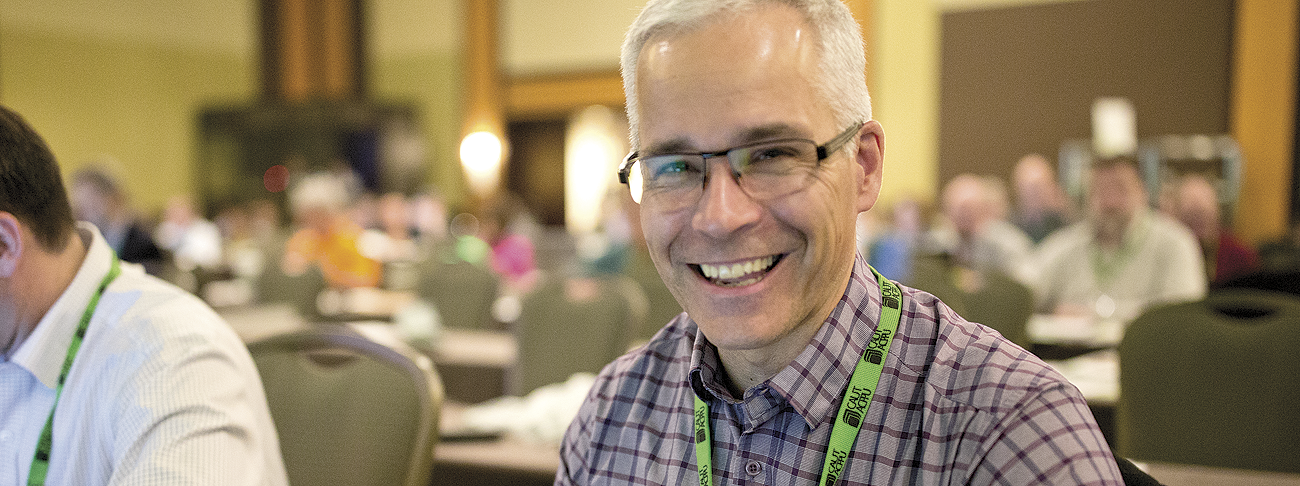
by James Compton
Are contract academic staff the canaries in the academic coal mine? There is an increasing awareness that the life of CAS members bares little resemblance to the “groves of academe” idyll touted by critics of university autonomy. They are paid a fraction of the salaries of their regular academic staff colleagues, they work mostly on short-term teaching-only contracts, and struggle to maintain a research profile while putting in extremely long hours. And their numbers are growing. In the United Kingdom only 51 per cent of university academic staff enjoy permanent contracts that include both teaching and research. Here in Canada the data on university contract academic staff is poor, but we know their ranks are swelling. And in the college system the numbers are even higher. There are no languid conversations over cigars and brandy in the faculty lounge for them. They are too busy and anxious.
As Vinnie Mosco and Catherine McKercher have argued, “the psychological contract between employer and workers has been rewritten,” and its price is precarity, or what Zygmunt Bauman calls “existential uncertainty.” However, the fact is that while contract academic staff face less pay, and more uncertainty than their regular academic staff colleagues, they are not alone in their anxiety. A recent 2016 Times Higher Education workplace survey of academics found that 39 per cent of respondents said they wanted to quit. Why? They reported being overworked and suffering from poor health resulting from work-related stress. Most academics surveyed said they found their job rewarding, but as Ruth Barcan warns us, “most skilled and economically significant professions in which almost 40 per cent of workers want to leave would be viewed as being in crisis.” What, then, has become of — to borrow Stanley Aronowitz’s one liner — “the last good job” in Canada?
In 2010, a survey of Canadian academics commissioned by CAUT found that a “majority, in most cases a large percentage, of respondents reported relatively high levels on five of the eight stressors.” These were workload, role conflict, work-life conflict, unfairness-administration, and unfairness-rewards. Interestingly, the survey also found that other known workplace stressors, such as lack of job control and role clarity, were not reported as key factors. This, perhaps, is less surprising given that academics fortunate enough to have tenured positions still enjoy relative control over what they research and teach.
Twenty years ago, Gary Rhoades and Sheila Slaughter coined the term “academic capitalism,” to capture what they saw as the uneven and contradictory mixture of entrepreneurialism, top-down managerialism, and audit culture being foisted upon universities. They cited three “inversions”: 1) “the public interest is best served not by separating public from private entities but by privatizing the public sphere,” 2) “the public interest is best served not by the unfettered exercise of expert, professional judgment but by the flexible exercise of managerial control of professionals,” and 3) that instead of supporting liberal education by “limiting disparities” between academic fields, resources should be transferred “from such fields to those areas perceived as being close to corporate markets, thereby increasing resource disparities.” They called this “Robin Hood in reverse.”
It is in the wake of the embrace of these policy proscriptions that the size and precarity of contract academic staff has increased along with the stress and anxiety of the entire academic community. To be clear, there are winners in this system, but for many the academic life is often characterized by uncertainty, overwork and anxiety.
Elissa Foster, in her recent essay “Academic Labor in the Age of Anxiety,” captures the contradiction: “the further I advance in my career, the more I have come to realize that the pervasive emotional tone of my day-to-day life is anxiety. While acknowledging the joy, fun, curiosity, discovery, and sense of accomplishment that make the work of teaching and scholarship worth doing, I also posit that the ground on which we walk as academics is more akin to a factory floor than a fertile field.”
As we work to lessen the effects of, what John Smyth has called, “the toxic university,” we would do well to remember that striving to improve the working conditions of our CAS colleagues is not an act of charity. Because, we’re all in this together.